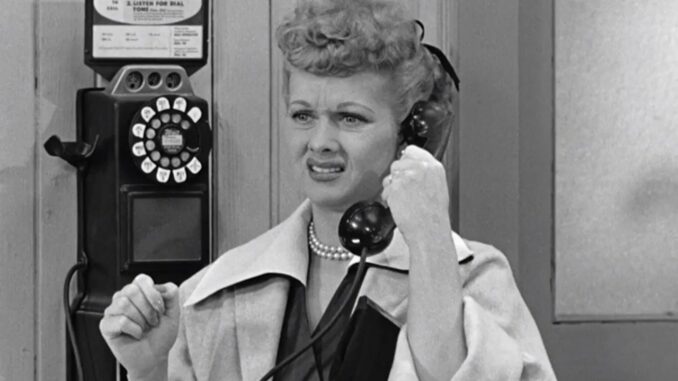
Introduction: The Unbelievable Story Behind Lucille Ball’s Decision
When you think of classic TV, ‘I Love Lucy’ is undoubtedly one of the first shows that comes to mind. But did you know that Lucille Ball, the powerhouse behind the series, agreed to the role despite taking a significant financial loss? It might sound surprising, but this decision wasn’t just about money—it was about legacy, love, and changing the face of television forever. Let’s dive into the fascinating story of why Lucille Ball made this bold move.
H1: The Birth of ‘I Love Lucy’
H2: Lucille Ball’s Career Before the Show
Before ‘I Love Lucy’ hit the airwaves, Lucille Ball was already a successful actress. Known for her comedic timing and charm, she had carved out a niche in Hollywood. However, her career wasn’t without challenges. By the late 1940s, Ball was transitioning from film to radio, where she starred in the hit show “My Favorite Husband.”
H3: The Opportunity to Transition to Television
CBS saw the potential in Lucille Ball and wanted to adapt her radio show into a television series. At the time, television was still a relatively new medium, and Ball recognized its potential to reach a broader audience.
H1: The Bold Demand That Changed Everything
H2: Insisting on Desi Arnaz as Her Co-Star
Lucille Ball’s insistence on having her real-life husband, Desi Arnaz, play her on-screen spouse was a groundbreaking move. At the time, an interracial couple leading a primetime show was unheard of. Executives were skeptical, but Ball stood firm, knowing that their chemistry was undeniable.
H3: Fighting for Creative Control
Lucille and Desi didn’t just want to star in the show—they wanted to produce it. This level of control was rare for actors, especially women, in the 1950s. The couple formed Desilu Productions, a move that would later revolutionize the television industry.
H1: The Financial Sacrifice
H2: Why Lucille Ball Took a Pay Cut
In agreeing to produce ‘I Love Lucy,’ Lucille Ball and Desi Arnaz made a financial gamble. Instead of taking a higher upfront salary, they opted for ownership of the show. This meant they shouldered the production costs, which initially led to financial strain.

H3: Betting on Syndication Rights
The decision to take ownership paid off in the long run. By retaining syndication rights, ‘I Love Lucy’ became one of the first shows to generate massive profits from reruns, setting a precedent for future TV series.
H1: Revolutionizing Television
H2: Pioneering the Multi-Camera Format
One of the most innovative aspects of ‘I Love Lucy’ was its use of the multi-camera format. This technique, combined with a live studio audience, created a unique viewing experience that became the industry standard.
H3: Breaking Gender Norms in Hollywood
Lucille Ball wasn’t just a comedic genius; she was a trailblazer for women in entertainment. By taking on the dual roles of actress and producer, she shattered glass ceilings and paved the way for future generations.
H1: The Legacy of ‘I Love Lucy’
H2: A Cultural Phenomenon
From its debut in 1951, ‘I Love Lucy’ captured the hearts of millions. Its humor, relatability, and groundbreaking storytelling made it a cultural phenomenon that remains beloved to this day.
H3: Lucille Ball’s Enduring Impact
Even decades after her passing, Lucille Ball’s influence on television and comedy is undeniable. Her willingness to take risks and push boundaries changed the entertainment landscape forever.
H1: Conclusion: A Risk Worth Taking
Lucille Ball’s decision to agree to ‘I Love Lucy’ despite taking a financial loss wasn’t just a career move—it was a leap of faith. By prioritizing creative control and her partnership with Desi Arnaz, she not only created one of the most iconic TV shows of all time but also redefined what was possible in the industry. Her story is a testament to the power of vision, resilience, and believing in something bigger than oneself.
FAQs
1. Why did Lucille Ball agree to take a financial loss for ‘I Love Lucy’?
Lucille Ball believed in the potential of television and wanted creative control over the show. She prioritized long-term success over immediate financial gain.
2. How did Desilu Productions impact the TV industry?
Desilu Productions set a precedent for actor-producers and introduced innovations like the multi-camera format, which became a standard in sitcoms.
3. What challenges did Lucille Ball face in producing ‘I Love Lucy’?
Lucille Ball had to fight for her husband, Desi Arnaz, to be cast and convince CBS to give them creative control. They also faced financial strain initially.
4. Why is ‘I Love Lucy’ still relevant today?
The show’s humor, relatability, and groundbreaking storytelling continue to resonate with audiences, making it a timeless classic.
5. What is Lucille Ball’s legacy in Hollywood?
Lucille Ball is remembered as a trailblazer who broke barriers for women in entertainment and revolutionized the television industry.